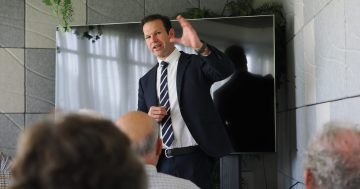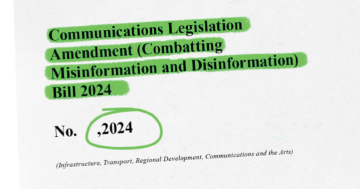Leah Sparkes* finds that in an increasingly uncertain world there are growing numbers of people who have the certainty that what they believe in is absolutely right.
 I have always had an aversion to people who came across as very confident and self-assured.
I have always had an aversion to people who came across as very confident and self-assured.
It may be because I so rarely experience that feeling myself and enviously wonder how is it they can be so certain and self-confident.
On one hand there is something seductive and reassuring about that certainly, but on the other I have a lurking suspicion that something is amiss.
In these uncertain and polarised times ‘being right’ seems to be a pandemic.
So, it seems fair to ask how do we know what we know?
Neurologist, Robert Burton in his book, On Being Certain, argues that certainty is not a conscious choice or a rational thought process.
Certainty, or the feeling of being right, are sensations that arise out involuntary brain activity independent of reason.
Neuroscientists have also come to understand that feeling right or certain produces a reward sensation in the brain much like an addict getting a hit.
In fact, our brains crave certainty. It makes us feel safe.
I guess it is no surprise that in a time of great uncertainty such as we are in that we see increased polarisation and self-righteousness.
Our brains just want certainty and safety.
Harvard Psychologist, Ellen Langer says about our thinking: “We are frequently in error and rarely in doubt.”
Psychologist, Daniel Kahneman says of his entire Nobel Prize-winning research that “most of us believe we are right most of the time about most things without noticing”.
I have been curious about this because it is a topic that has come up a lot in my coaching lately.
Being right is a seductive trap for leaders.
Our culture promotes and rewards leaders that act as though they are the smartest person in the room and have all the answers.
One virtue that we can cultivate to overcome the rush of being right is to develop ‘intellectual humility’.
This simply means the ability to recognise that the things you believe might in fact be wrong.
Leaders are paid for high quality thinking and decision-making, so be vigilant for the ‘certainty trap’ which will undermine your thinking and performance.
Red flags to look out for are feeling judgemental, defensive or superior.
So what can you do?
Practice metacognition or thinking about your thinking.
Ask questions like: What do I believe and how can I be wrong? What am I not seeing? Whose perspective am I missing? How would I know if I am wrong?
Stay curious and listen to learn rather than fix.
As American astrophysicist and author, Neil deGrasse Tyson one said: “No one is dumb who is curious. The people who don’t ask questions remain clueless throughout their lives.”
*Leah Sparkes is head of Candeo Consulting in Sydney. She can be contacted at candeo.com.au
The article first appeared on the Candeo Consulting website.











